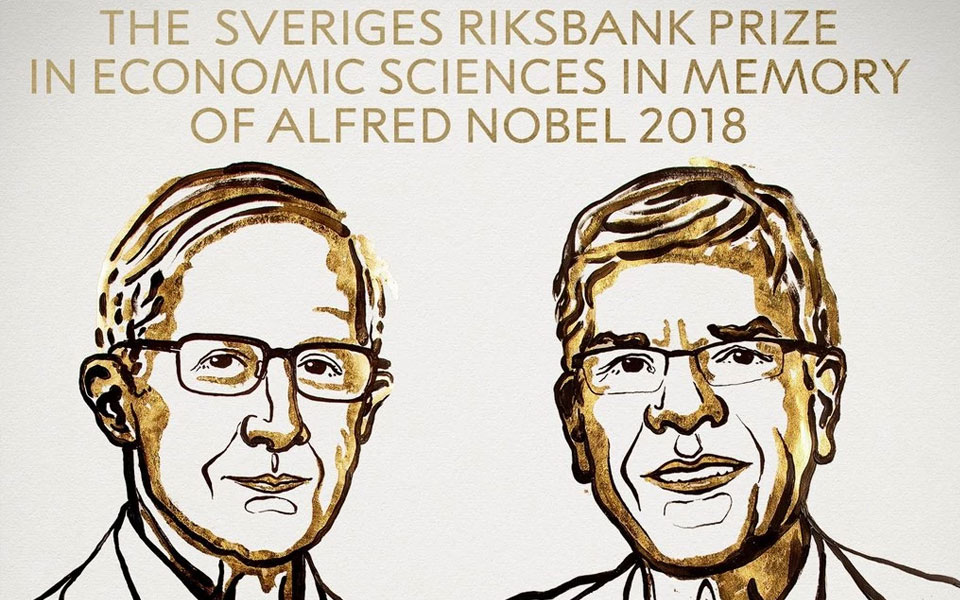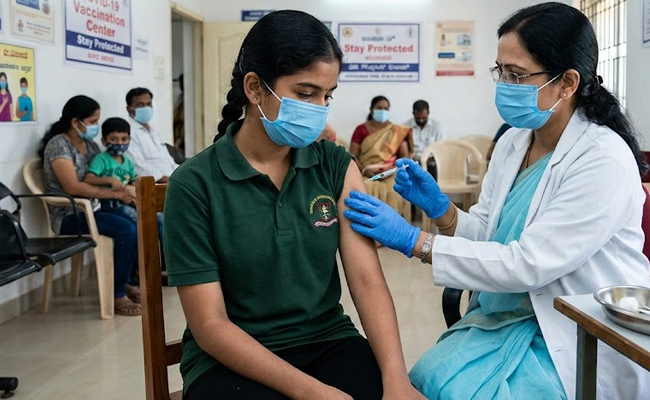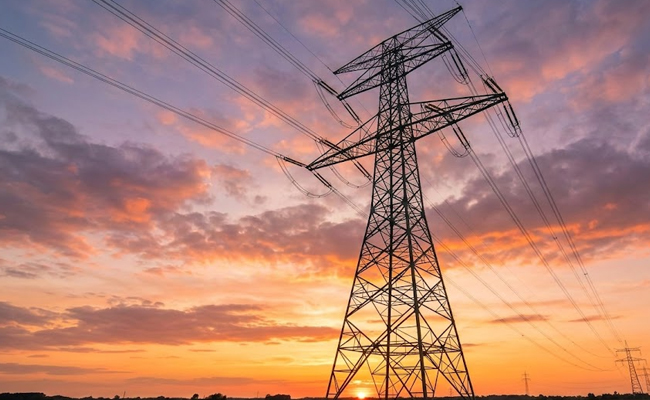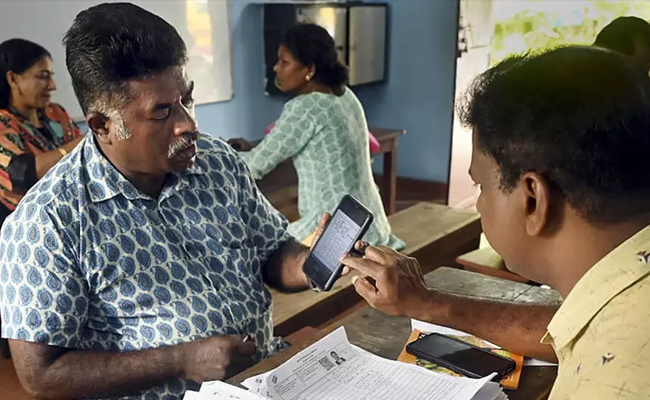Stockholm, Oct 8 : US economists William Nordhaus and Paul Romer on Monday shared the 2018 Nobel Economics Prize for integrating innovation and climate with economic growth, the jury said.
Nordhaus, a professor at Yale University, and Romer, a former World Bank chief economist now at New York University's Stern School of Business, have addressed "some of our time's most basic and pressing questions about how we create long-term sustained and sustainable growth," the Royal Swedish Academy of Sciences said in a statement.
It said the pair have "significantly broadened the scope of economic analysis by constructing models that explain how the market economy interacts with nature and knowledge." Nordhaus, 77, was specifically honoured for "integrating climate change into long-run macroeconomic analysis."
The 62-year-old Romer meanwhile won for "integrating technological innovations into long-run macroeconomic analysis." Both have been tipped as frontrunners for the Nobel in recent years.
The pair will share the nine million Swedish kronor (about 1.01 million or 860,000-euro) prize.
Last year, the honour went to US economist Richard Thaler, a co-founder of the so-called "nudge" theory, which demonstrates how people can be persuaded to make decisions that leave them healthier and happier.
Unlike the other Nobel prizes which were created in Swedish inventor and philanthropist Alfred Nobel's last will and testament and first awarded in 1901, the economics prize was created by the Swedish central bank, the Riksbank,in 1968 to mark its tricentenary. It was first awarded in 1969.
The Nobel, which also consists of a diploma and a gold medal, will be presented at a formal ceremony in Stockholm on December 10.
The Nobel economics prize wraps up the 2018 awards season, notable this year for the lack of a literature prize, postponed by a year for the first time in 70 years over a rape scandal that came to light as part of the #MeToo movement.
Last week, after the prizes for medicine, physics and chemistry were announced, the most highly-anticipated Nobel, that for peace, went to Yazidi women's campaigner Nadia Murad and Congolese doctor Denis Mukwege for their work in fighting sexual violence in conflicts around the world.
Let the Truth be known. If you read VB and like VB, please be a VB Supporter and Help us deliver the Truth to one and all.
Mumbai (PTI): More than 8.9 lakh girls in the age group of 14-15 years in Maharashtra will be administered the HPV vaccine to prevent cervical cancer, Health Minister Prakash Abitkar said in the legislative council on Wednesday.
Replying to a Calling Attention Motion, Abitkar said a three-month vaccination drive will be launched on Women's Day (March 8).
"During the drive, the HPV vaccine will be administered to 8.94 lakh females in the age group of 14-15 years," he said.
He said another group of girls in the same age bracket will be covered next year.
The minister added that the government is also planning to screen everyone above 30 years of age for oral, breast, and cervical cancer.
The nationwide Human Papillomavirus (HPV) vaccination campaign was launched by Prime Minister Narendra Modi on Saturday.





